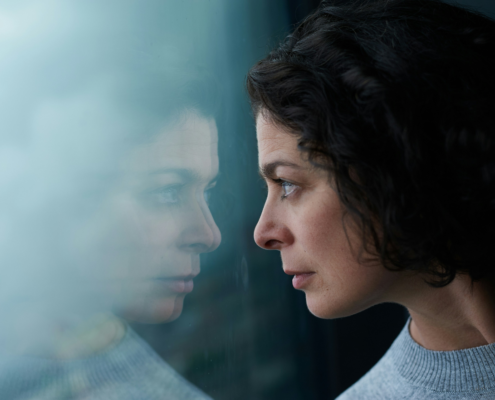Countertransference in Psychoanalytic Couple and Family Work
Anglophone Conference
International Association of Couple and Family Psychoanalysis (IACFP) & Tavistock Relationships
Date:
Friday, June 6, 2025 – Saturday, June 7, 2025
Time:
de 2:00 pm – 6:30 pm (UK)
Location:
Zoom & Recording for 365 days
Event Type:
Live Online Event
Programme :
Day One: Friday, June 6, 2025
14.00 (UK) Andrew Balfour, CEO of Tavistock Relationships & Hanni Mann-Shalvi, Vice President of IACFP and Chair of the Anglo Scientific Committee of the IACFP
Opening Remarks
14.15 Anna Maria Nicolò, President of IACFP & Karen Proner, Former Vice President of the IACFP
Introductions
14.30 Jill Scharff & David Scharff
Countertransference as Key to the Geography of the Transference in Couple and Family Work in China and Russia
Countertransference is both an interference with and a pathway to understanding the transference of the couple and the family group. Countertransference is complicated when the families’ dynamics are massively affected by sociocultural factors, such as rapid social change in China, and war and migration in Russia, and international governmental conflict. Working with countertransference when treating patients or supervising their therapists in these challenging social conditions provides vivid opportunities for understanding the geography of the transference. These will be illustrated in clinical vignettes for discussion.
15.15 Discussion
15.30 Panel Session One: Moderator Lea De-Setton
15.35 Monica Vorheimer
Countertransference: Whose problem is it?
Couples and families often normalise situations that, within the analyst’s perspective, are perceived as conflicts. Drawing on clinical case studies, the author explores countertransference as how unconscious dynamics affect the analyst’s mind and how transforming these responses can pave the way to challenging normalized patterns. Recognizing conflicts or symptoms as such is the crucial first step toward understanding and resolving them
15.55 Jim Poulton
The Intricate Web: The Individual, the Relational, and the Cultural
Bollas (2008) has suggested that culture – the web of beliefs, attitudes, rules, and aesthetics that surrounds us and is passed down from generation to generation – functions to limit the expression of character, sometimes to a pathological extent. In this presentation, the influence of the surrounding culture on a couple’s relationship will be explored, focusing in particular on the ways in which cultural pressures can interact with and mutually reinforce pre-existing personality patterns, both in each individual partner and in their shared relationship. Using an example of a couple living within a relatively self-contained culture – that of the “Mormon” church (or the Church of Jesus Christ of Latter Day Saints) in Salt Lake City, Utah – both the couple’s transferences and the therapist’s countertransferences will be analysed in light of their interplay with aspects of the prevailing culture. Brief comments on how to conceptualise the interactions between cultural, individual, and relational factors, as well as on methods of intervention, will also be given.
Title and Abstract
16.15 Lin Tao
Countertransference and the Dao Philosophy in Couple Therapy
In ancient China, Lao Zi’s Dao De Jing (Tao Te Ching, 道德经) systematically explores the creation and principles of the Dao, the relationship between human beings and the universe, and other foundational philosophical ideas. According to Lao Zi, when humans are united with the Dao, they align with its natural flow, leading to long and fulfilling lives. To achieve this union, Lao Zi advocates maintaining a state of mental nothingness, a state that is crucial for establishing a connection to the Dao. This emptiness of mind allows one to perceive and know the truth. In some way, this concept can be paralleled with Bion’s notion of « transformation in O » and his principle of « no memory and no desire, » which emphasizes a similar mental openness, though there is some subtle difference. In this lecture, I will explore, from the perspective of Chinese philosophy, how this particular mental state facilitates the emergence and its recognition and understanding of countertransference in the context of couple therapy. By comparing these philosophical insights, I aim to shed light on how a mindful, open state can reveal deeper therapeutic dynamics and enhance the clinical understanding of couple relationships.
16.35 Q&A
17.00 Break
17.15 Panel Session Two: Moderator Ludovica Grassi
17.20 Tatiana Onikova
Countertransference of a Relocated Analyst
The countertransference of a therapist who has experienced emigration can significantly influence their work with couples facing the existential dilemma of whether to leave or stay. We will explore how the therapist’s personal migration experience impacts the therapeutic process, the manifestations of countertransference in couples therapy, and potential strategies for managing this phenomenon. Through the analysis of clinical cases and theoretical frameworks from psychoanalysis and family therapy, key aspects are examined: the projection of the therapist’s own migration experiences, emotional identification with clients, and tendencies toward heightened empathy or resistance to their decision. Strategies for recognizing and regulating countertransference are discussed to ensure it does not distort the therapeutic process but rather facilitates a deeper understanding of the couple’s motivations, fears, and internal conflicts. The countertransference of a therapist who has experienced emigration can significantly influence their work with couples facing the existential dilemma of whether to leave or stay. We will explore how the therapist’s personal migration experience impacts the therapeutic process, the manifestations of countertransference in couples therapy, and potential strategies for managing this phenomenon. Through the analysis of clinical cases and theoretical frameworks from psychoanalysis and family therapy, key aspects are examined: the projection of the therapist’s own migration experiences, emotional identification with clients, and tendencies toward heightened empathy or resistance to their decision. Strategies for recognizing and regulating countertransference are discussed to ensure it does not distort the therapeutic process but rather facilitates a deeper understanding of the couple’s motivations, fears, and internal conflicts.
17.40 Amita Sehgal
Cultural Countertransference in Couple Psychoanalytic Psychotherapy
How do we think about the culture of psychoanalysis, the fundamentals that we would not question, when we work with a couple whose subjective culture (of shared understanding and agreed meanings) differs from ours? This presentation considers the complexities of cultural countertransference from this perspective. It explores how the therapist’s own cultural background, training, personal experiences and biases, shapes their reactions to couples from different cultures and affects the therapeutic process. Some of the therapeutic challenges can include misinterpreting culturally-influenced behaviours as signs of pathology, others can raise ethical dilemmas for the therapist. The importance of engaging in self-reflection to ensure the delivery of culturally sensitive and ethical care is emphasized.
18.00 Q&A
18.15 Andrew Balfour & Hanni Mann-Shalvi
Closing Remarks
18.30 End
Day Two: Saturday, June 7, 2025
14:00 (UK) Andrew Balfour & Hanni Mann-Shalvi
Welcome back and Summary of Day One
14:10 Mary Morgan
De-Mystifying the Countertransference in the Couple Analytic Process
There is something unknowable and therefore mysterious about the way in which one unconscious interacts with another. But this interaction is also at the heart of the psychoanalytic process and countertransference is now considered as ‘an instrument of research into the patients unconscious’ (Heimann, 1950). But what is our contemporary understanding of countertransference, and is it more complicated to understand in terms of the couple’s inner world? I discuss the enacted nature of countertransference, the process of working through and the utilisation of couple analytic concepts to process countertransference in therapeutic work with couples.
14.40 Anna Maria Nicolò
The Specificity of Countertransference with the Couple and Family
Countertransference in the setting with the couple and the family has a great specificity that arises from the position of the analyst who is ,at the same time ,the therapist in the setting and a member of the new-group. Because of this specificity the analyst must decode and use not only the emotions that he/she experiences in the therapeutic link but also the enactements, the somatic experiences and the dreams that are generated in this situation. Experiences of consonance and communication between the unconscious of the members , often occur in these settings and allow us to hypothesise an extratopic and interpersonal level of the unconscious. A clinical example will illustrate these aspects.
15.10 Q&A
15:30 Panel Session Three: Moderator Cristina Călărășanu
15.35 Hanni Mann-Shalvi
Between Fear and Hope: Psychoanalytic Perspectives on Unanticipated Catastrophe
On October 7, 2023, unprecedented violence shook Israel, leaving thousands of individuals and families grappling with unthinkable trauma. This talk reflects on the psychological impact of these events, exploring how such catastrophes reverberate through the psyche of individuals, couples, families, and society as a whole. Drawing from personal testimony and clinical practice, our speaker will examine the challenges of navigating unanticipated violence and the collective psychological resilience that can emerge under such catastrophe. Through a psychoanalytic lens, she will consider the conscious and unconscious dynamics triggered by such events, highlighting the interplay between fear, hope, despair, and renewal. Using a clinical psychoanalytic couple vignette and countertransference reflections, this talk will offer a broader theoretical framework that bridges specific national experiences with universal psychological themes. Attendees will gain insights into how profound trauma shapes individual and relational dynamics, as well as how therapeutic engagement can help address the profound vulnerabilities and defenses that surface in times of catastrophe.
15.55 Anastasia Tsamparli
Couple and Social Trauma
The sociocultural adversities of the last decades have revealed new ways of suffering that have endangered our identifications and promoted the fragility of our links. Financial recession is one such adversity whose effects penetrate all levels of social stratification: wider society, groups, families ,couples and individuals. This presentation refers to the clinical work with a couple that is experiencing the threat of poverty due to bankruptcy in the context of the recession of 2008 in Greece. The aim is to show the ways bankruptcy affects the internal worlds of the partners, the psychic reality of their link and the therapeutic relationship. It focuses on the transference/countertransference relationship with emphasis on the challenges for the therapist, mainly the difficulty to maintain her internal setting in order to help the couple recover their capacity for mutual containment and find new ways to adapt.
16.15 Elizabeth Palacios
Suffering in the link. Exploring the Importance of Countertransference in Couple and Family Work During Wartime and Crisis Situations
The paper focuses on the transference-countertransference dynamic in clinical work with couples and families, particularly in times of crisis. The notion of “clinical material” is examined, emphasizing the significance of the psychoanalytic dialogue and the unconscious processes that emerge during sessions. Clinical material is understood as the emotional, verbal, and unconscious content that facilitates transformation within the psychoanalytic setting. In multi-personal settings, the analyst’s countertransference is crucial in making sense of the material and enabling therapeutic progress. The paper concludes by discussing the tools necessary to engage with this material, such as emotional involvement, theoretical frameworks, and the selection of meaningful data. Clinical vignettes will be provided. The tangible effects of war and crises, including factors such as unemployment and pandemics, contribute to a pervasive atmosphere of chronic fear. Freud (1932) attempted to explain the human tendency to engage in wars, noting that the conflicts within communities are shaped by complex, often overlapping, factors. Both social and natural catastrophes produce devastating effects on individual and collective subjectivity, leading to pathologizing consequences in links as well as in the individual psyche. Our technical psychoanalytic tools are fundamental in these clinical contexts.
16.35 Q&A
16.50 Break
17.05 Panel Session Four: Moderator Katherine Astill
17.10 Andrew Balfour
At the Junction of Internal and External Realities: Countertransference as Opportunity and Obstacle in the Psychoanalytic Study of the Public Health Challenges of Our Time.
Psychoanalytic understanding of couple relationships offer a unique lens with which to radically revision our understanding of key public health challenges, which, around the world, are viewed within an atomistic model of the de-contextualised individual’s ‘illness’. Taking the example of dementia, this paper explores the potentially transformative role that could be played by analytically informed approaches, noting the vital role of countertransference in our understanding of the neglect of engagement with the emotional experience of couples living with dementia, both from front line medical and psychological care, and perhaps most of all, from our own profession of psychoanalysis.
17.30 Nestor Kapusta
When the Outside Activates Inside Dyads in Psychoanalytic Couple Therapy
Each significant societal change and major external event, such as war, the presidency of an authoritarian figure or new economic prosperity of a country may be represented by an object relation which activates templates of dyadic interactions and unconscious phantasies. Given that partners of a couple grew up and have been shaped by different environments in their past, such external events trigger two different individual reactions which may lead to misunderstandings and tensions within a couple. This is even more true, when the activated dyad (eg. the ‘tyrant’ and the ‘weak’) puts more strain on an anyway collusive dyadic relationship; that is a couple which stabilizes their relationship through splitting an mutual projective identification. The lecture will point to the countertransference of the analyst to the activated dyad and the challenge to take the split off latent dyad into account, based on an short clinical couple vignette touching on a current major external event.
17.50 Daniela Lucarelli
Countertransference in Psychoanalytic Work with Couples and Families in the New Socio-Political and Cultural Assets
The great social changes taking place in our era seem to have affected the functioning of the shared unconscious and the mythopoetic role, in the sense of imposing new beliefs, new values and representations. There are new modes of social relations in today’s society based on narcissism that have led to an inversion of the relationship between public and private life. It seems that individualism, self-sufficiency with the negation of dependency needs, and success, particularly economic success, are the currently prevailing values. Society proposes an ideal of grandiosity that sustains feelings of omnipotence, in the face of a reality that is increasingly complex and difficult to live with, which easily leads to feelings of impotence and dependence. Through the presentation of some brief clinical vignettes, I will highlight the repercussions, in the affective life of couples, of the characteristics that work has acquired in our day and age, and I will consider the counter-transferential experiences that can emerge in these treatments.
18.10 Q&A
18.20 Andrew Balfour and Hanni Mann-Shalvi
Closing Session
18.30 End
Speaker Information
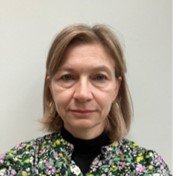
Katherine Astill
Katherine Astill is a psychoanalytic couple therapist and a psychodynamic psychotherapist. She works in private practice, and teaches and supervises at Tavistock Relationships.

Andrew Balfourl
Andrew Balfour PhD is Chief Executive of Tavistock Relationships. He originally trained as a clinical psychologist at University College London and then as an adult psychoanalytic psychotherapist at the Tavistock & Portman NHS Trust, whilst in a staff post there. He subsequently trained as a couple psychotherapist at Tavistock Relationships, where for more than 10 years he was Clinical Director before becoming Chief Executive in 2016. He has many years’ experience of working psychotherapeutically with couples and conducting research, publishing numerous papers in the field and teaching widely both in Britain and abroad. He has co-edited two books How Couple Relationships Shape our World (edited by Andrew Balfour, Mary Morgan & Christopher Vincent, Routledge, 2012); Engaging Couples – New Directions in Therapeutic Work with Families (edited by Andrew Balfour, Christopher Clulow, & Kate Thompson, Routledge, 2019) and his latest book is Life and Death: Our Relationship with Ageing, Dementia and Other Fates of Time (Routledge, 2025).

Cristina Călărășanu
Family Psychoanalytic Psychotherapist, founder member and ex-president of the Romanian Association for the Psychoanalysis of Group and Family Links, European Federation Psychoanalytic Psychotherapy (EFPP) vice-president and president of the Couple and Family Section, EFPP Book Series Editor in Chief, Scientific Secretary and Chair of the International Association for Couple and Family Psychoanalysis (IACFP).
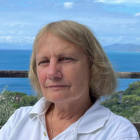
Ludovica Grassi
Ludovica Grassi is a child neuro-psychiatrist, a full member of the Italian Society of Psychoanalysis, a qualified expert in child and adolescent psychoanalysis, and a psychoanalyst of couples and families (PCF, IACFP). She is currently Treasurer of the Italian Psychoanalytic Society and member of the executive committee of the Italian Society of Couple and Family Psychoanalysis. She has extensive experience with multi-problem families, transcultural psychotherapy settings through the Italian NHS, and infant-parent psychotherapy clinics and research. Her main scholarly interests are infant psychoanalysis, ethno-psychoanalysis, and the role of music in psychic development. She has written on these topics as well as on individual, couple and family psychoanalysis. Her book The Sound of the Unconscious: Psychoanalysis as Music was published by Routledge in June 2021.
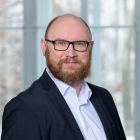
Nestor Kapusta
Nestor Kapusta, M.D., is Associate Professor of Psychiatry and Psychotherapy, Individual and Couple Psychoanalyst at the Department for Psychoanalysis and Psychotherapy, Medical University of Vienna and in private practice. He is leading the Psychoanalytic Couple Therapy Program and the Working Group for Psychoanalytic Couple Therapy and works towards an integrative Couple Object Relations Theory informed by Transference Focused Therapy.

Tao Lin
Dr Lin, Tao M.D. Psychoanalyst and full Training Analyst of IPA; Direct Member of IPA; Member of the China Study Group of IPA; Couple Psychoanalytic Psychotherapist qualified by Tavistock Relationships, Member of Tavistock Relationships Association of Psychotherapists and Counsellors; Guest Member of the British Psychoanalytical Society. Registered Member of the British Psychoanalytic Council.
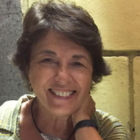
Daniela Lucarelli
Daniela Lucarelli psychologist, psychoanalyst, Full Member at the IPA/SPI , and IPA recognised expert on children and adolescents . Editor in Chief of the IACFP Review (International Review of Couple and Family Psychoanalysis) . Co-Chair for Europe of COFAP (Committee for Couple and Family Psychoanalysis)/IPA, Teacher and supervisor at Istituto Winnicott iW, in Rome, Founder member of SIPsIA (Società di Psicoterapia Psicoanalitica dell’Infanzia e dell’Adolescenza) in Rome. Teacher and supervisor at PCF (Corso Postspecialistico di Psicoanalisi della Coppia e della Famiglia) in Rome. Member of the Editorial Board of Interazioni review (Franco Angeli, Milan, Italy) . She is author and co-author of publications on children, adolescents and couple and family psychoanalysis.

Hanni Mann-Shalvi
Hanni Mann-Shalvi, PhD, is a couple and family psychoanalyst and training and supervising psychoanalyst and lecturer with the Israeli Psychoanalytic Society (IPA). She teaches psychoanalysis internationally, including USA, China, and Russia. Dr. Mann-Shalvi is the founder and director of the Psychoanalytic Couple and Family Center in Israel, affiliated with the International Psychotherapy Institute (IPI) in Washington, where she also serves as an adjunct faculty member. She has held leadership roles as the Vice President of the International Association of Couple and Family Psychoanalysis (IACFP) and chair of the Anglo Scientific Committee. She is currently on the International Advisory Board of the Couple and Family Psychoanalysis journal. An accomplished author, Dr. Mann-Shalvi wrote From Ultrasound to Army: The Unconscious Trajectories of Masculinity in Israel, available in both English and Hebrew. She is also the chief editor of an upcoming series on couple and family psychoanalysis, scheduled for publication in Hebrew in 2025. Additionally, she has contributed numerous papers and book chapters to the field. Dr. Mann-Shalvi maintains a private practice in Tel Aviv, Israel.
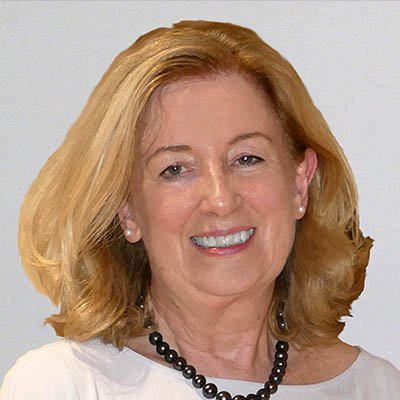
Mary Morgan
Mary Morgan is a Psychoanalyst and Couple Psychoanalytic Psychotherapist, Fellow of the British Psychoanalytical Society, Senior Fellow of Tavistock Relationships, Honorary Member of the Polish Society for Psychoanalytic Psychotherapy and Consultant Member of the IPA Committee on couple and Family Psychoanalysis. She worked for more than 30 years at Tavistock Relationships, London, during which time she was the Reader in Couple Psychoanalysis and Head of the MA and Professional Doctorate in Couple Psychoanalytic Psychotherapy. She has a private analytic practice with individual and couples, supervises and teaches internationally. Her book: ‘A Couple State of Mind: Psychoanalysis of Couples – the Tavistock Relationships Model’ (2019) is available in English, Polish, Russian, Italian and Chinese. Her latest book ‘Couple Relations: A Contemporary Perspective’ is forthcoming. She is also co-editing with Julie Friend a book ‘Love, It’s Meaning and Exploration in Couple therapy, to be published next year.
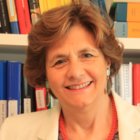
Anna Maria Nicolò
Anna Maria Nicolò is a child neuropsychiatrist, psychoanalyst, and President of the International Association of Couple and Family Psychoanalysis (IACFP). Formerly President of the Italian Psychoanalytic Society (SPI-IPA), she co-founded the Italian Society for Psychoanalytic Psychotherapy of Childhood, Adolescence, and the Couple (1987) and the Italian Society for Couple and Family Psychoanalysis (2000). She chaired the European Forum for Psychoanalysis of Adolescents (EPF/FEP) and served as European Representative for the International Psychoanalytical Association (IPA). A supervisor at Reverie Community, she is also the founding editor of the International Review of Couple and Family Psychoanalysis, with numerous contributions to psychoanalytic research.

Tatiana Onikova
Clinical psychologist, psychoanalytic individual, child, adolescents, couple and family psychotherapist, psychoanalyst in training. Founder and director of training programs of International Psychotherapy school (Moscow-Prague-Almaty)

Elizabeth Palacios
Dr. Elizabeth Palacios is an MD Psychiatrist from the University of Buenos Aires and a Training Analyst with the Madrid Psychoanalytic Association (IPA). She is also an IPA-certified Child and Adolescent Psychoanalyst. Currently based in Zaragoza, Spain, Dr. Palacios directs the Center for Vulnerable Adolescents and serves as Chair of the IPA Couple and Family Psychoanalysis Committee (COFAP). She is the founder of the Aragonese Society for the Investigation of Child and Adolescent Psychic Life and the Director of the Spanish journal Thinking Psychoanalytically. Dr. Palacios has authored and edited numerous books and scientific papers on child, adolescent, emergency, couple, and family psychoanalysis. Her most recent publications include Interpretation in Couple and Family Psychoanalysis: Cross-Cultural Perspectives together with Dr Timothhy Keogh (Routledge and Psimática) and Emergency and Psychoanalysis: Thinking the Pandemic (Psimática). She is a professor in various master’s programs and psychotherapy schools in Spain and internationally.
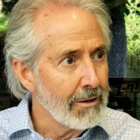
Jim Poulton
James Poulton, Ph.D., is a psychoanalytic psychotherapist in private practice in Salt Lake City, Utah, an Adjunct Assistant Professor in Psychology at the University of Utah, an Emeritus national faculty member of the International Psychotherapy Institute (IPI), and one of three Editors-in-Chief of Couple and Family Psychoanalysis. He has written numerous articles and chapters on psychological treatment and theory, and is the author of Object Relations and Relationality in Couple Therapy: Exploring the Middle Ground (2012) and co-author of Suffering and Sacrifice in the Clinical Encounter (2020) and Internalization: The Origin and Construction of Internal Reality (2001).
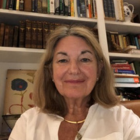
Karen Proner
Karen Proner is an IPA Child, Adolescent, and Adult Psychoanalyst. Faculty member of IPTAR. Member of the American Psychoanalytic Association. Former Vice President of the English speaking members of AIPCF (Association for Couples and Family Therapists.) Teaching faculty of Wuhan Psychiatric Hospital. Teaching faculty of Adult and Child Heguang training. Teaching faculty of Centro Studi Martha Harris in Firenze, Italy. Proner was a founding member of the IPA committee of Psychoanalytic work with Couples and Families. She is now a member of the IPA committee; Psychoanalysis in Health. She works with parents and infants and holds an interest in the Tavistock method of Infant observation.

David Scharff
David E. Scharff, M.D. is Co-Founder and Former Director, International Psychotherapy Institute; Clinical Professor of Psychiatry, Georgetown University and The Uniformed Services University of the Health Sciences; Supervising Analyst, International Institute for Psychoanalytic Training; He is editor of the journal Psychoanalysis and Psychotherapy in China, author and editor of more than 30 books and more than 100 articles, and Director of the Training Programs in Analytic Couple and Family Therapy in Beijing and Moscow; former Chair of the IPA’s Committee on Couple and Family Psychoanalysis. He is a Child and Adult Analyst in Private Practice with children, adults, couples and families in Chevy Chase, Maryland. His most recent book is Marriage and Family in Modern China. With Dr. Jill Scharff, he is the 2021 winner of the Mary Sigourney Award in Psychoanalysis, the most prestigious award in the field.
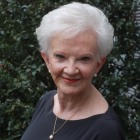
Jill Scharff
Jill Savege Scharff MD, FABP, MRCP is co-founder of the International Psychotherapy Institute (IPI) in Bethesda MD, USA, www.theipi.org, founding chair of its adult analytic training, combined child analytic and child psychotherapy, and couple and family therapy training programs. She teaches couple and family therapy for the International Psychotherapy School in Moscow and for Zhi-Dao-Zhong-He Medical Institute in Beijing, and directs an online training program in child psychotherapy for IPI at Jiandanxinli in Beijing. She is Clinical Professor of Psychiatry at Georgetown University Medical School in Washington DC. Jill is Honorary Member of the Tavistock Institute of Medical Psychology and of the Institute für Paar-Terapie, Frankfurt, Germany, and a Senior Fellow of Tavistock Relationships. She is editor of a special issue of Couple and Family Psychoanalysis on therapy in the time of Covid-19 (Vol.12, no. 1, 2022). She is co-editor of Psychoanalytic Couple Therapy and New Paradigms in Treating Relationships, and co-author of Object Relations Family Therapy, Object Relations Couple Therapy, and Object Relations Therapy of Physical and Sexual Trauma. Her most recent book co-authored with David Scharff is The Interpersonal Unconscious. With David Scharff she received the Sigourney Award (2021) for “outstanding psychoanalytic work worldwide”.

Amita Sehgal
Amita Sehgal, PhD, is a couple psychoanalytic psychotherapist with almost 30 years of experience in the field of adult mental health. In her central London-based practice she works with adults, couples, and families. She also lectures and supervises nationally and internationally. Amita is widely published in the field of couple psychoanalysis. Her publications include articles, papers in peer-reviewed journals, book chapters, and an edited book, Sadism: Psychoanalytic Developmental Perspectives (published by Karnac-Routledge, 2018).
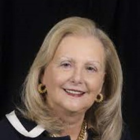
Lea de Setton
Lea Sofer de Setton, Ph.D, (Panama RP) Training analyst, member of the International Psychoanalytic Association; Member, APSaA; member, FEPAL; faculty member of the International Psychotherapy Institute (IPI) and supervising analyst at the International Institute of Psychoanalytic Training at IPI, Bethesda, Maryland; former Chair of IPI-Panama; former faculty member of the Doctoral Program at the Catholic University in Panama; founding member of the Panamanian and chair, Psychoanalytic IPA Provisional Society; co-editor of The Linked Self in Psychoanalysis: The Work of Enrique Pichon-Riviere; psychologist, psychoanalyst, and psychotherapist in private practice with individuals, couples, and families in Panama City, Panama R.P.
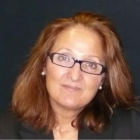
Anastasia Tsamparli
Anastasia Tsamparli (PhD) is a Psychoanalytic couple therapist and Prof. Emeritus of clinical psychology at the University of Aegean, Greece. She has been teaching in psychoanalytic couple therapy programs in Greece and elsewhere as an adjunct faculty at IPI. She is member of the International Advisory Board of the Journal “Couple and Family psychoanalysis” and member of the CA of the International Association of Couple and Family Psychoanalysis (IACFP) and IACFP’s Vice President of French speaking. She has written numerous articles ,chapters and books on couple and family psychoanalytic therapy. Her most recent publications include “psychoanalysis and couple therapy” (2025)

Monica Vorchheimer
Monica Vorchheimer is a Training and Supervising Psychoanalyst at the Buenos Aires Psychoanalytical Association (APdeBA). She has a private practice in Psychoanalysis with adolescents, adults, families, and couples in Buenos Aires, Argentina. She teaches and lectures locally and abroad in several countries . She was the Latin America Co-Chair of ING, the International New Groups Committee and past Co-Chair for Latin America at the IPA Committee on Psychoanalysis with Couples and Families (COFAP) and currently Consultant. Currently she serves on the IPA Board as a Latin America Representative. She has published articles and chapters in books, and co-edited with David Scharff Clinical Dialogues on Families and Couples (Karnac, 2017).

